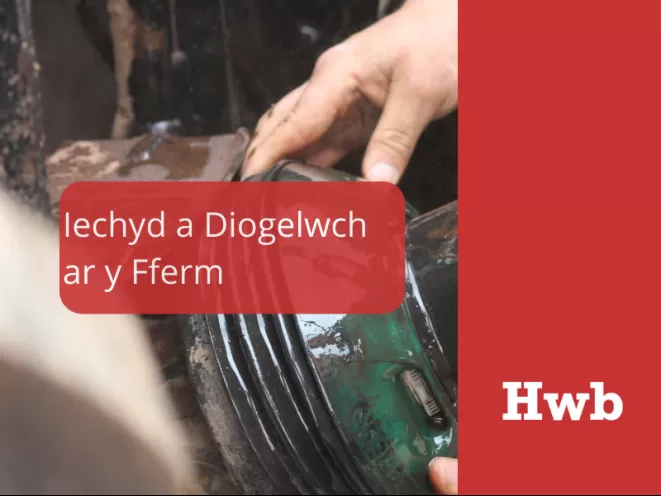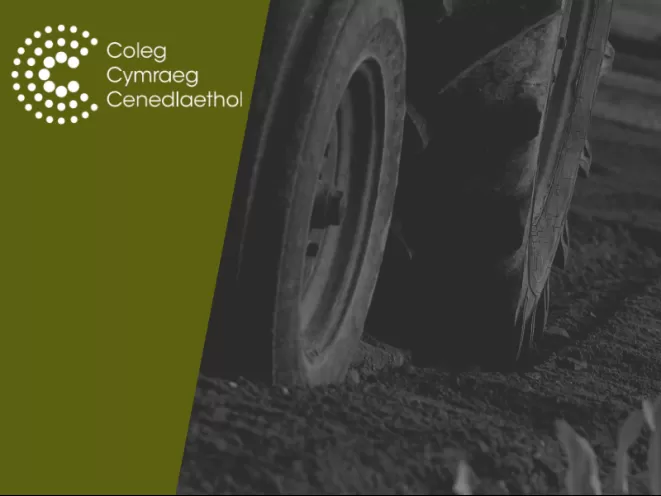University Ready is your easy-to-use hub, whether you’re about to move on to university-level education, or if you’re supporting someone who is – perhaps as a parent, teacher, carer or adviser. You can search by topic – like study skills, wellbeing and mental health, or student life – by institution, and by subject area, so you can be sure of getting straight to the resources you need.
Animal Care Resourse
This interactive resource is designed to provide information on the basic skills and knowledge needed to care appropriately for a wide range of animals. The content is divided into a series of units focusing on different groups of animals. The units emphasise the needs of species within a range of categories. As a whole, this short course introduces key aspects of how to care for an animal, and shows how to use the necessary skills and knowledge to maintain the animal's health and welfare.
Farm Animal Health
This resource was developed to introduce different topics relating to farm animal health. The resource contains a collection of videos, interactive activities and presentations in Pdf/Word format. There are also teacher notes to accompany the different subjects. Over 20 different topics are presented including: The causes of ill health in farm animals Farm health planning and biosecurity Lameness in cattle and sheep Injecting Pneumonia in cattle and sheep Dosing Castration
Sgiliaith: Bilingual Teaching posters
Here is a series of posters by Sgiliaith that offer ideas on how you can start to use and introduce the Welsh language in your lessons. The posters are suitable for tutors and work based learning assessors, but would also be useful for teachers that are interested in incorporating more Welsh into their lessons. The poster series includes keywords on the following: Greetings Feedback Simple questions Bilingual Glossary for Tutors and Work based Learning Assessors The Advantages of Bilingualism Creating a Welsh Ethos in the Classroom Useful Resources Begin to Bilingualise an Online Lesson
Movement in and out of cells
This resource was created for Level 3 Medical Science students but the information is relevant to any student studying biology at level 3 such as Health and Care or A level. The content is also useful for lecturers and students of studies with an element of animal science. This resource looks at the movement of substances in and out of the animal's cell membrane. It also deals with the mechanism of movement of the substances, and in particular looking at active transport. There are activities within the presentation to check your learning. This resource was adapted by Coleg Cymraeg Cenedlaethol. Thank you to Coleg Sir Gâr for sharing the original content.
Amaeth Amdani
Work Experience in the Agriculture Industry A resource to help agricultural students learn about the skills they need to identify whilst looking for and participating in a period of industry-relevant work experience. The resource will support learners who are preparing for employment within the agricultural sector and should; Identify employment opportunities in the agricultural sector explain the process of applying for a job explain the good interpersonal skills needed to work in the industry. Section 1 - contains a series of video clips preparing for employment within the agricultural sector. Section 2 - contains a presentation that describes the process of applying for a job, it includes finding vacancies, creating a CV and how to write an application letter. Section 3 - contains a video clip by an employer explaining the good interpersonal skills that are necessary and expected within a workplace. This resource has been created or commissioned by the Welsh Government and is available on the HWB platform.
Pollution and waste in agriculture
This resource supports the teaching and learning of unit 316 ‘Pollution and waste control management’ of the City and Guilds: ‘Advanced Technical Extended Diploma’ in Agriculture (Level 3). It will improve learners understanding of the pollution generated by the agricultural industry, and how waste can be practically and effectively managed This resource demonstrates how to deal with agricultural waste, helps learners to understand what is meant by organic and inorganic waste and helps learners to identify the legislation and codes of practice relevant to agricultural waste management. This resource has been created or commissioned by the Welsh Government.
Health and safety on the farm
Within the City & Guilds framework it is essential for students to study the 'Principles of Health and Safety' unit. The purpose of this resource is to enable students to understand the principles of health and safety and how health and safety standards can be implemented within the agricultural sector. This resource highlights the importance of health and safety on the farm. It demonstrates health and safety statistics and legislation relevant to the agricultural industry, looks at the implications of accidents on the farm, and provides examples of good practice to reduce the number of incidents. This resource has been created or commissioned by the Welsh Government.
Ensuring future availability of ruminant products of the highest quality
Government statistics illustrate that by 2050 there will be a shortage of meat and milk due to globalpopulationgrowth and the increaseddemand from the Far East. Ensuring food security in terms of availability and nutritionalsafety is, therefore, important for our future existence. Central to achieving milk and meat security are ruminants. Ruminants have a four chambered stomach composed of the reticulum, rumen, abomasum and omasum with microbial fermentation of forage occurring in the rumen. Rumen microbial fermentation is largely responsible for animal production, ruminant product quality and much of greenhouse gas emissions. Indeed, when forage reaches the rumen, the rumen microbes degrade the plant cell wall and subsequently metabolise plant cell content, including plant amino acids and proteins which they convert into proteins that they can utilise. In order to ensure availability of milk and meat of the best possible quality (with the least greenhouse gas emissions) for the future, we must increase our understanding of the plant-microbe interactome using the principles of systems biology and 'omic' technology.
Worm Research Project
Nod y prosiect hwn oedd deall gwasgariad y parasit llyngyr y rwmen yng Nghymru. Gweithiodd gwyddonwyr o IBERS, Prifysgol Aberystwyth, gydag aelodau CFfI ar draws Cymru i ddarganfod ym mha ffermydd yr oedd llyngyr y rwmen yn bresennol.
Are small peptides a nutrition source for plant and micro-organisms in the maritime Antarctic?
Nitrogen (N) is the most important element that controls plant growth. During the past twenty years, our understanding of which N species are important for plant growth has developed significantly but it is still thought that large nitrogenous molecules need to be broken down into their constituent amino acids to be available for plant and microbial growth. This paper builds on our understanding of this process and suggests that small peptides are equally important for microbial nutrition and that soil microbes outcompete plants for low molecular weight N compounds in maritime Antarctic soil.
Prentis-iaith
These short courses are for apprentices who are keen to develop their confidence to use their Welsh in the workplace. They enable the apprentices to complete a part of their course through the medium of Welsh. There are four different levels: Awareness, Understanding, Confidence and Fluency and there is a quiz to determine which level is suitable for you.











